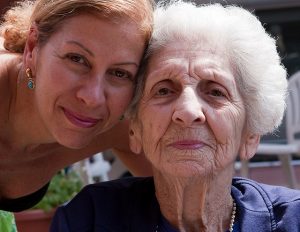Guest Blog: Hiring an In-Home Caregiver: What You Need to Know
When looking for an in-home caregiver for your loved one, it’s a given you would prefer someone they can get along with really well and will do a great job of taking care of them. However, finding this home care option for your senior loved one can be challenging at times.
Fortunately, there is no shortage of tips you can follow to ensure you find the perfect person for the job. The following tips should get your search off to a fantastic start:
Create a clear job description
To come up with a clear job description, identify what your elderly loved one’s needs are. A clear and specific job description can help you determine the flexibility needed, the number of hours they’ll be looking after your loved one, and how much you are likely to pay.
Be flexible when hiring independently
If you want to find great candidates, you need to be flexible about the pay. It is also recommended that you offer the going rate in your area. Otherwise, you might not find applicants with the care skills you are looking for.
Conduct multiple interviews and a trial period
To get more insights about a candidate, consider conducting three interviews:
- A short screening interview over the phone to ensure they meet the necessary requirements.
- An in-person interview if they pass the phone screening.
- An in-person interview where the top 2 candidates can also meet your elderly loved one.
Ask all the important questions during the interview
Asking all the right questions can help you find someone responsible, compassionate, and trustworthy. It would also be a good idea to ask what they’ll do in a specific situation. For instance, what they would do if your elderly loved one refuses medications or does not cooperate.
Check their references
Even if you find a candidate very impressive, it is ideal that you still do a background check. You can do this by calling the work references they have provided. You can ask if they do a good job and if they’ll hire the candidate again.
Conclusion
While finding the best in-home caregiver can be challenging, it can be done. As long as you prepare accordingly and cover all the essential bases, you’ll find the right person for the job with ease.




